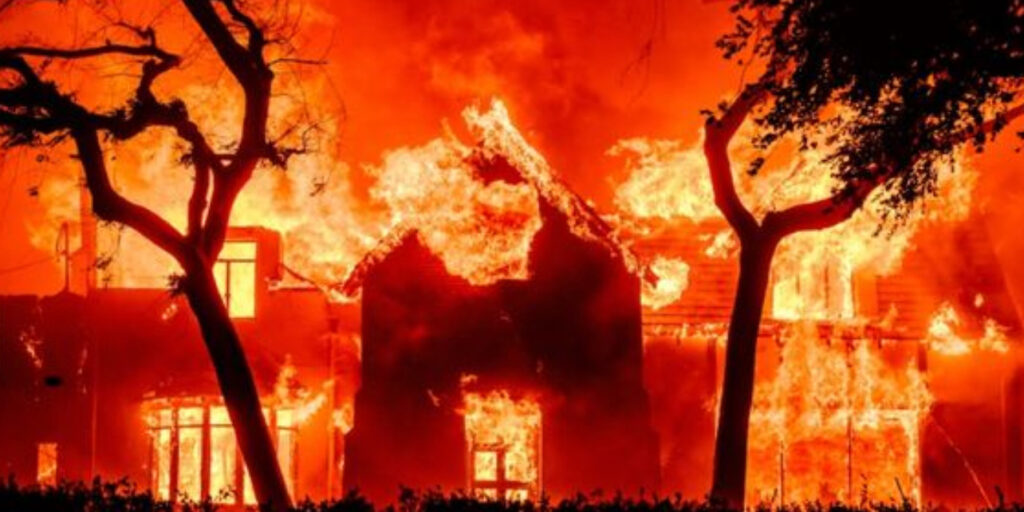The UK Government has raised alarms over the potential for extreme wildfires, warning that such events could lead to widespread evacuations and take up to seven days to bring under control.
This caution comes as fires in Los Angeles continue to burn, wreaking havoc across the city more than a week after they first ignited.
The warning is part of the 2025 National Risk Register, which details the country’s preparedness for various emergencies.
The updated report highlights the growing threat from wildfires, exacerbated by climate change and the warming planet.
Wildfire Risks in the UK: A Growing Concern
The risk report outlines a “reasonable worst-case scenario” where a sustained, extreme wildfire could ravage multiple regions of the UK simultaneously.
It predicts that such fires could take between four and seven days to control, requiring an extensive response from firefighters and emergency services across the country.
In the event of a major wildfire, large-scale evacuations would be necessary, with the potential for casualties and significant health risks due to smoke and toxic air.
The report stresses that critical infrastructure, including transport networks, utilities, and the environment, could face severe disruption or damage.
With the threat of multiple fires occurring concurrently due to dry spells and prolonged heat, fire brigades in affected areas would likely need to call in additional support from across the UK.
Fire and rescue services would lead the response, deploying advanced resources such as high-volume water pumps and urban search and rescue units.
Impact of Climate Change on Wildfire Frequency
The report connects the rise in wildfire risks to climate change, which is expected to increase the frequency and intensity of extreme weather events.
Longer, drier summers and changing weather patterns will create ideal conditions for wildfires, with more frequent and larger blazes predicted in the coming years.
Wildfires typically occur in the UK between February and October, but the new risk report suggests that climate change could lead to even more severe and widespread fires.
The Home Office, alongside other Whitehall departments and the National Fire Chiefs Council, is working to enhance prevention strategies and response capabilities to manage the evolving threat.
Global Wildfire Crisis and Growing Risks
The foreword of the National Risk Register, written by Cabinet Office Minister Pat McFadden, underscores the shifting nature of global risks.
He noted the devastating floods in Valencia and the massive wildfires currently plaguing the United States, particularly in Los Angeles. These events serve as a stark reminder of the increasingly volatile nature of extreme weather events around the world.
In Los Angeles, two major wildfires, Palisades and Eaton, have burned for more than a week, leaving destruction in their wake.
With at least 27 people killed and over 12,000 buildings destroyed, the fires have spread across 40,000 acres, and hundreds of firefighters are still battling the blazes.
The UK Government is carefully monitoring the situation, drawing lessons from international wildfires to better prepare for the potential risks that could affect Britain in the future.
Conclusion: Preparing for Wildfire Risks in the UK
As the UK braces for the potential of more extreme weather events due to climate change, the Government’s new risk assessment aims to ensure that the country is prepared for any future wildfires.
The ongoing efforts to improve wildfire prevention and response strategies are crucial in mitigating the impacts of these disasters, safeguarding lives, and protecting vital infrastructure.


